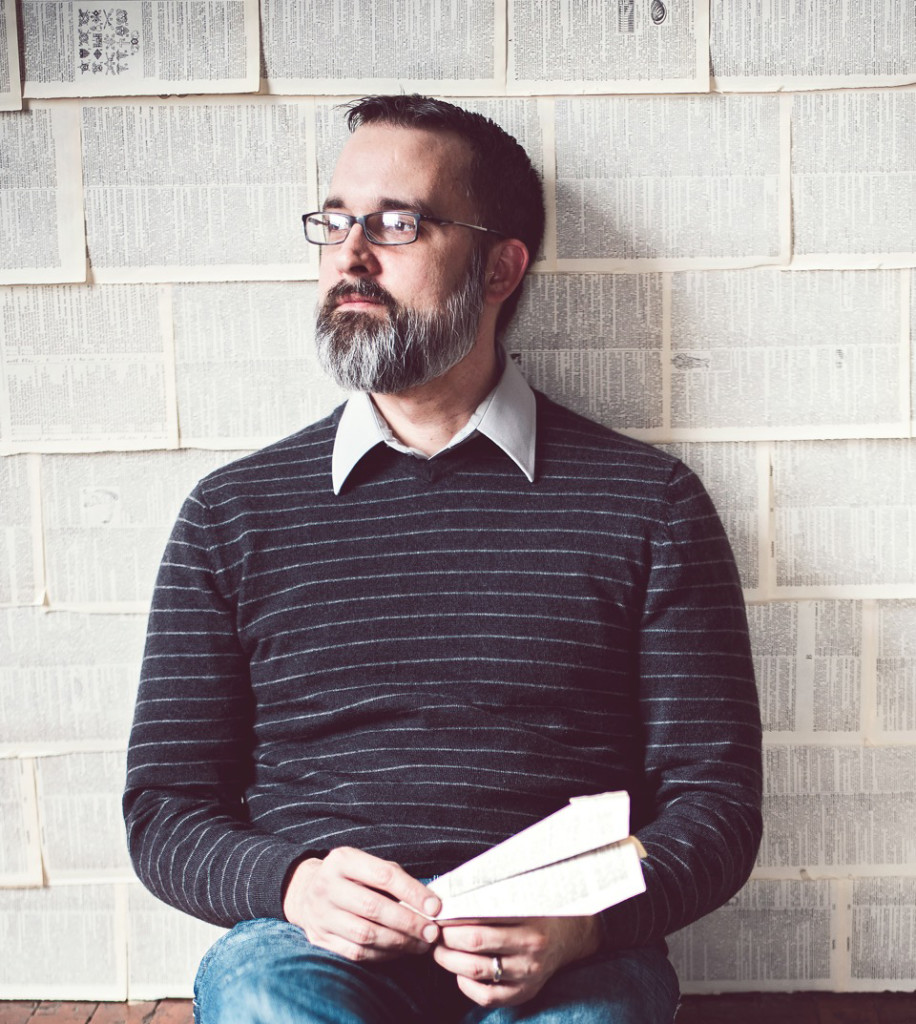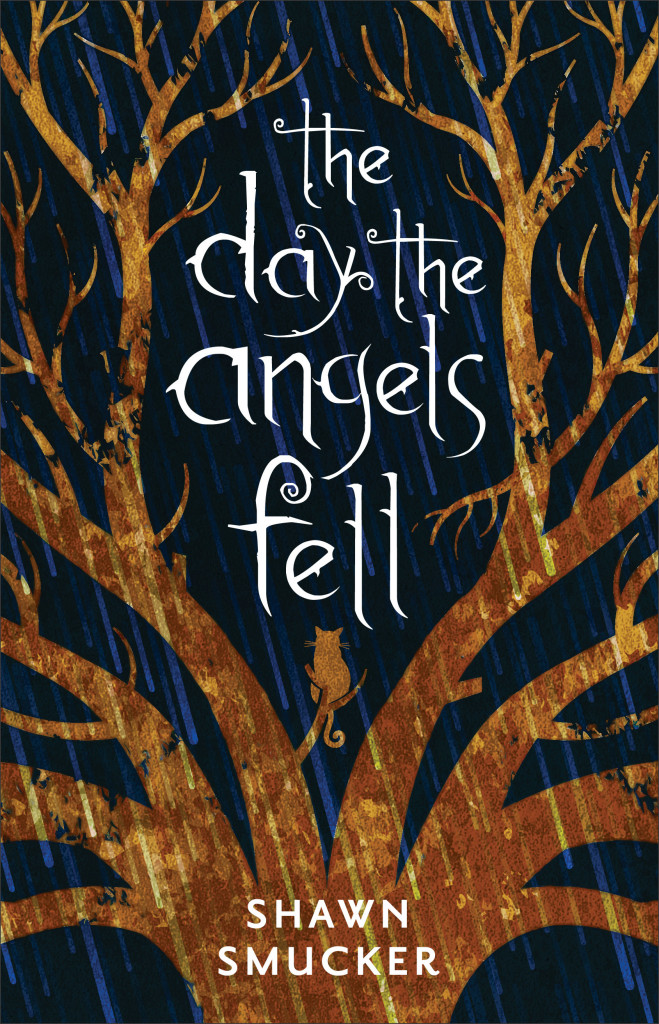It’s a privilege to introduce you to
Shawn Smucker
and his mystery novel
The Day the Angels Fell
Revell
*****
Who is Shawn?
Shawn Smucker lives with his wife and six children in Lancaster, Pennsylvania. The Day the Angels Fell is his first novel. Shawn will capture readers’ imaginations with his masterfully written debut novel that combines elements of mystery and magical realism. You can find him online at www.shawnsmucker.com, where you can also sign up for his newsletter.
Shawn’s inspiration for this story…
I was cowriting a memoir with a man in Istanbul, Turkey, who was dying of cancer. The goal was to finish the first draft before he passed away, so it was an intense three weeks, and we spent a lot of time together. For the first time in my life, I was face-to-face with mortality – he was forty-nine years old, a husband, a father of two children – and I wondered how I would feel if that was me, preparing to die.
When I got home from the trip I started talking to my children about what kind of story they would like, and together we came up with the basic structure for The Day the Angels Fell. As I began to write the book, I realized that doing so was my way of working through this fear of death I had taken on. And writing it really helped me come to grips with my own mortality.
It was the summer of storms and strays and strangers. The summer that lightning struck the big oak tree in the front yard. The summer his mother died in a tragic accident. As he recalls the tumultuous events that launched a surprising journey, Samuel can still hardly believe it all happened.
After his mother’s death, twelve-year-old Samuel Chambers would do anything to turn back time. Prompted by three strange carnival fortune-tellers and the surfacing of his mysterious and reclusive neighbor, Samuel begins his search for the Tree of Life–the only thing that could possibly bring his mother back. His quest to defeat death entangles him and his best friend Abra in an ancient conflict and forces Samuel to grapple with an unwelcome question: could it be possible that death is a gift?
Haunting and hypnotic, The Day the Angels Fell is a story that explores the difficult questions of life in a voice that is fresh, friendly, and unafraid. With this powerful debut, Shawn Smucker has carved out a spot for himself in the tradition of authors Madeleine L’Engle and Lois Lowry.
Shawn’s novel releases 5th September and here’s a sneak peek at the first chapter…
Chapter 1
I am old now. I still live on the same farm where I grew up, the same farm where my mother’s accident took place, the same farm that burned for days after the angels fell. My father rebuilt the farm after the fire, and it was foreign to me then, a new house trying to fill an old space. The trees he planted were all fragile and small, and the inside of the barns smelled like new wood and fresh paint. I think he was glad to start over, considering everything that summer had taken from us.
But that was many years ago, and now the farm feels old again. The floorboards creak when I walk to the kitchen in the middle of the night. The walls and the roof groan under the weight of summer storms. There is a large oak tree in the front yard again, and it reminds me of the lightning tree, the one that started it all. This house and I are two old friends sitting together in our latter days.
I untie my tangled necktie and try again. I’ve never been good at these knots. My last friend’s funeral is this week and I thought I should wear a tie. It seemed the right thing to do, but now that I’m standing in front of a mirror I’m having second thoughts, not only about the necktie but about even going. She was my best friend, but I’m not sure I have the strength for one more funeral.
Someone knocks on the front door, so I untangle myself from the tie and ease my way down the stairs, leaning heavily on the handrail. Another knock, and by now I’m crossing to the door.
“Coming, coming,” I say. People are in such a hurry these days. Everyone wants everything to happen now, or yesterday. But when you’re my age, you get used to waiting, mostly because you’re always waiting on yourself.
“Hi there, Jerry,” I say through the screen, not making any move to open it.
“I won’t come in, Samuel. Just wanted to apologize for my boy again.”
Jerry is a huge bear of a man with arms and hands and fingers so thick I sometimes wonder how he can use them for anything small like tying shoes or stirring his coffee. He’s always apologizing for his boy. I don’t know why—seems to me his boy simply acts like a boy. And because Jerry is always calling him “boy,” I can’t remember the child’s name.
“I heard he was throwing smoke bombs up on your porch this morning.”
“Oh, that. Well . . .” I begin.
“I won’t hear of it,” Jerry says. “In fact, as soon as I find him he’ll be coming here in person to apologize.”
“That’s really not necessary,” I say.
“No. That boy will apologize.”
I sigh. “Anything else, Jerry? How are the fields this summer?”
“Green. It’s been a good one so far.”
“All right,” I mumble, then turn and walk away because I’m too old to waste my time having conversations that don’t interest me. “All right.”
“Oh, and I’m sorry about your friend,” Jerry calls to me as I begin the slow ascent up the stairs. His words hit me like a physical object, make me stop on the third step and lean against the wall. They bring a fresh wave of grief to the surface, and I’m glad he can’t see my face.
“Thank you,” I say, hoping he will leave now.
“The missus says she was a good, close friend of yours for many years. I’m very sorry.”
“Thank you,” I say again, then start climbing the stairs. One foot after the other, that’s the only way to do it. I wish people would mind their own business. I have no interest at my age in collecting the sympathy of strangers. Or near strangers. In fact, I can do without sympathy at all, no matter the source.
I still imagine myself to be self-sufficient, and in order to maintain that illusion I keep a small garden at the end of the lane. Sometimes, while I’m weeding, I’ll stop and look across the street at where the old church used to be. After the fire they left the lot vacant and rebuilt the small brick building on a lot in town, but the old foundation is still there somewhere, under the dirt and the plants and the trees that came up over the years. Time covers things, but that doesn’t mean they’re gone.
If I’m honest, though, I have to admit that during some gradual phase in my life I became too old to work the farm myself. There was a time not long ago when my farm fell into disrepair, and I thought it would be the end of me as well, because I couldn’t bear to watch so many memories collapse in on themselves. Then the family that moved into Abra’s old farm, Jerry and “the missus” and his “boy,” asked if they could rent my fields and barns. I said yes because I had no good reason to say no. Now they take care of everything and I live quietly in the old farmhouse, puttering in my garden or sitting on the large front porch, trying to remember all the things that happened the summer my mother died.
Jerry’s son looks to be about eleven or twelve, my age when it happened. I wonder what he would do if his mother died.
I think he’s scared of me, and I don’t blame him. I don’t shave very often and my hair is usually unruly. My clothes are old and worn. I know I smell of old age—I remember that scent from when my father started walking with a cane.
Sometimes Jerry’s son will hide among the fruit trees that line the long lane and spy on me, but I don’t mind. I pretend not to see him, and he seems to have fun with it, climbing up to the highest branch and peering through an old tube as if it’s a telescope. Sometimes, though, when he gets to the top, I find myself holding my breath, waiting for him to fall. Everything falls in the end, you know.
I stare at the mirror again after climbing the steps and wonder where all the time has gone. I pick up the necktie and try again, but my old fingers can’t quite get it right. I remember when I was a very young boy my mother would sometimes put a tie on me, her delicate hands weaving the smooth fabric in a magical way.
“There,” she would say, patting the knot of the tie and looking rather pleased with herself. “Now you look like a young man.”
The boy reminds me of myself when I was his age. He runs around the farm with sticks and pretends they are swords and magic staffs. Those days seem so long ago. Now I move slowly, carrying only a cane that is nothing more than a cane. I don’t know if I have the power anymore to turn this cane into anything exciting, anything like a sword pulled from a stone or a gun that could kill an Amarok. Sometimes I feel like I have forgotten how to pretend.
I give up on the tie and sit with relief at the desk by the window that looks out over the front yard and the garden. It’s rather eerie how the farm has returned to almost the same condition it was in the summer my mother died, the summer of the fire. Sometimes when I look down the lane I expect to see her walking back up from the mailbox, or my dad to wander in from the barns, dirty and ready for dinner.
After many years of wondering if I could get the story of that summer exactly right, I have decided to simply write it as I remember it. There’s no one else left who was there when it happened, no one to compare stories with, no one to agree or disagree with my own version. As I think through the story, I wonder if it’s even possible that everything happened as my memory tells me it did. It all seems rather incredible.
But one thing I’m sure of: after everything that happened that summer, life seemed fragile, like an egg rolling toward the edge of the table. It seemed like anyone I knew could die at any moment. But now that I’m old and all my friends have died or moved away, my own life feels almost unbreakable, like it will never give up.
Which reminds me of something that Mr. Tennin told me in his thin, wispy voice, right at the end.
“Samuel,” he whispered. “Always remember this.”
I leaned in closer as the fire roared on the far side of the river.
“Death,” he said, then paused. “Is a gift.”
I stare at the obituary sitting at the corner of my desk, the one I cut out of the paper yesterday—such a small amount of writing meant to tell the story of someone’s entire life. I lift it up and it’s light, almost see-through, and for a moment life seems fragile again, and temporary.
Death, a gift? I would have shouted at someone had they said that to me at my mother’s funeral. But I’ve been on this earth for many years now, and I’ve seen many things, and I finally believe that Mr. Tennin was right.
Death, like life, is a gift.
This is how I remember that summer.
Be sure to stop by next week for my interview with Shawn and, thanks to Revell Books, a giveaway of The Day the Angels Fell!
Connect with Shawn
Website || Facebook || Twitter
Pre-order at Amazon: The Day the Angels Fell or Koorong













August 10, 2017 at 7:43 am
Sounds like an interesting book. Thanks for introducing a new author